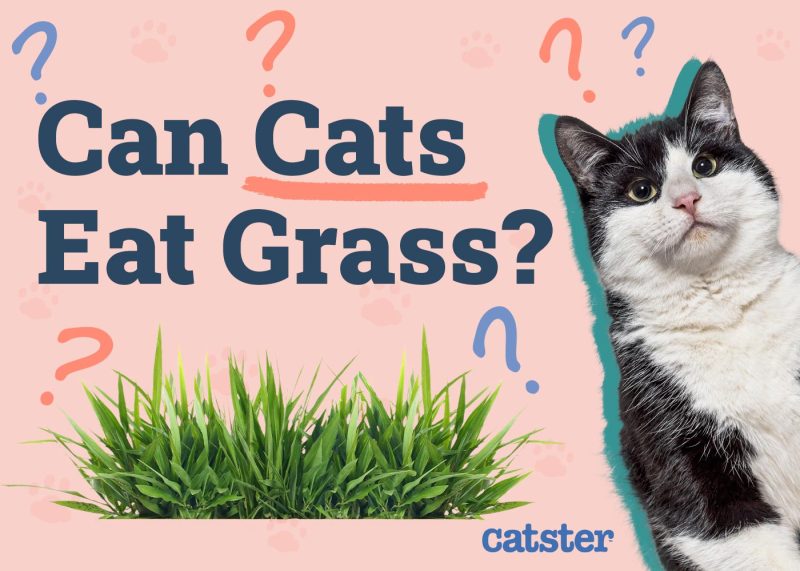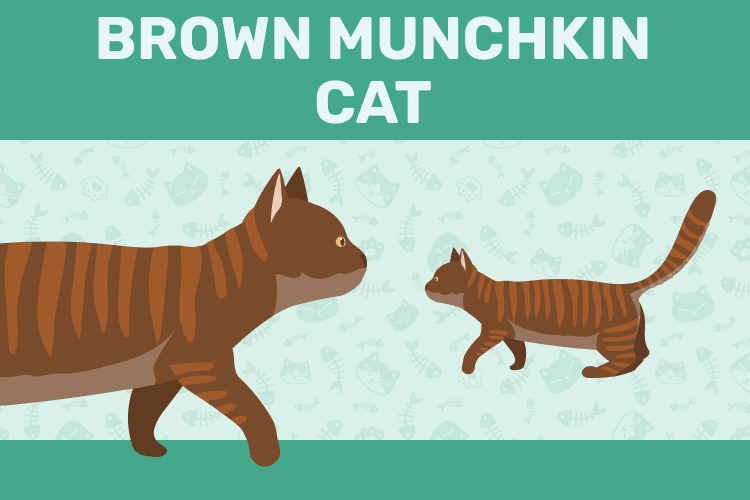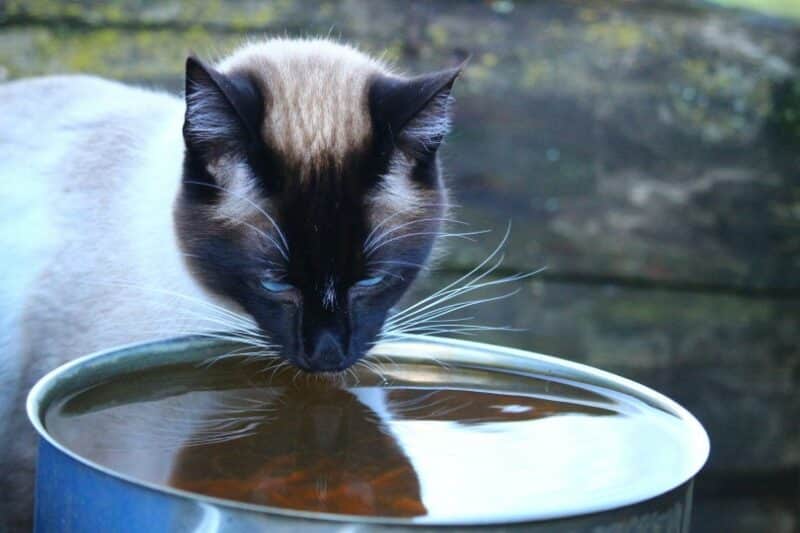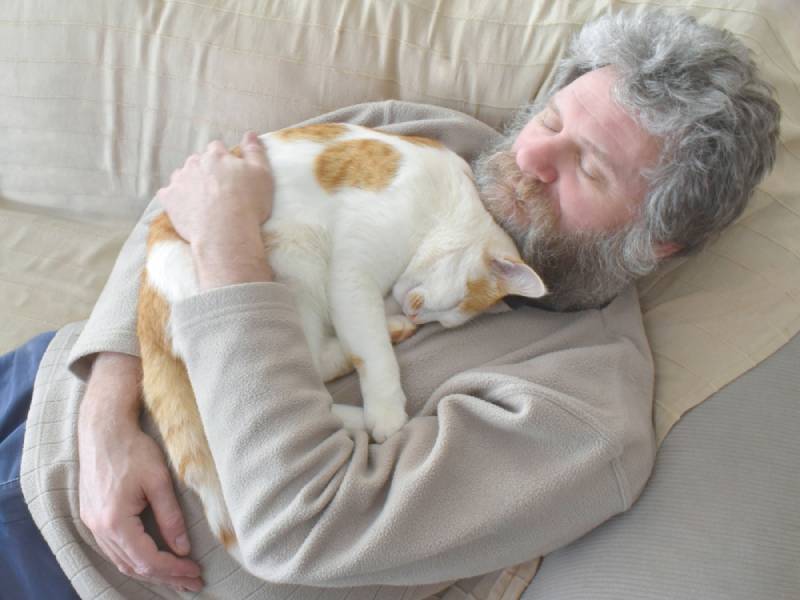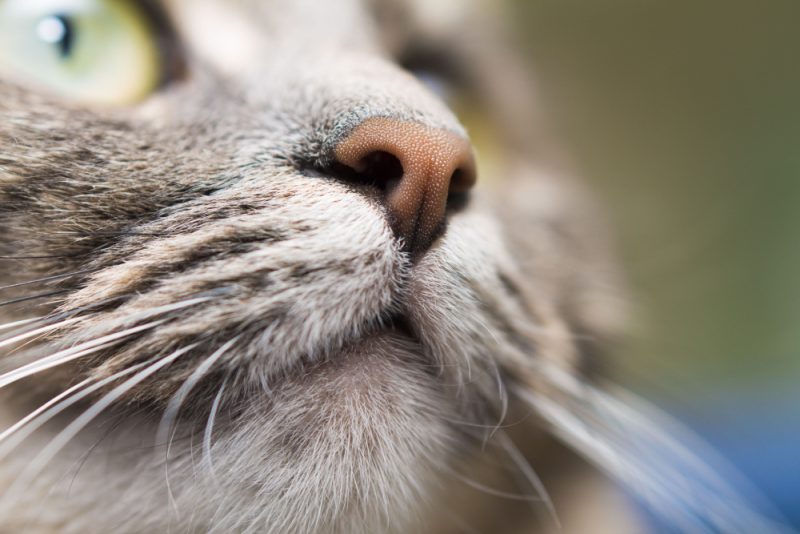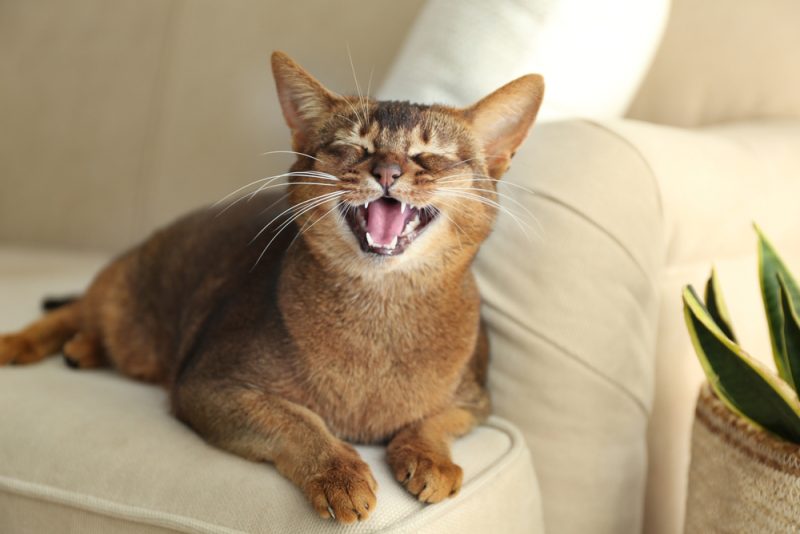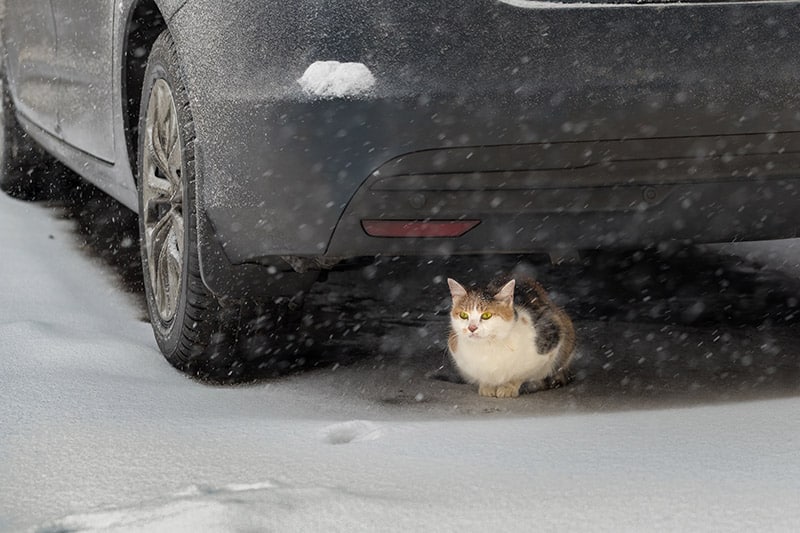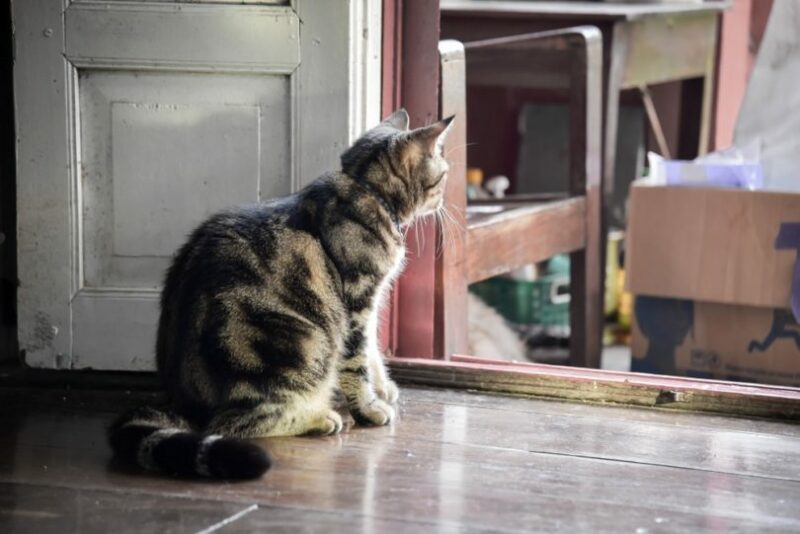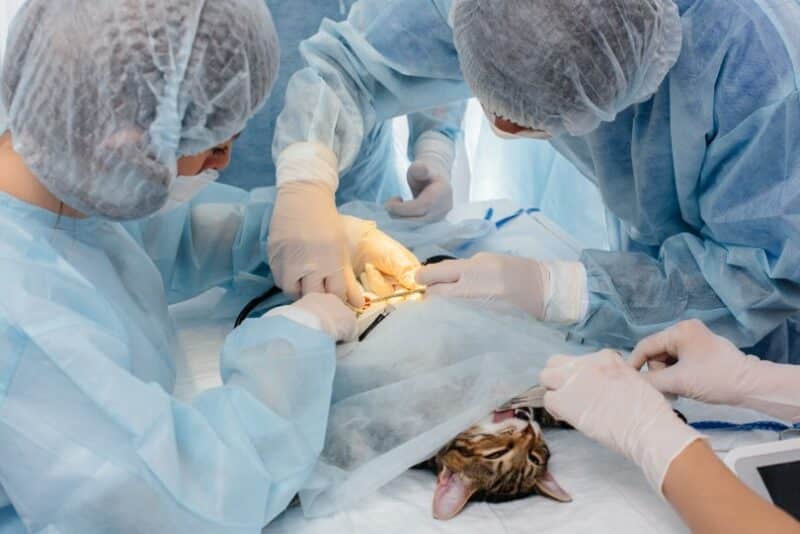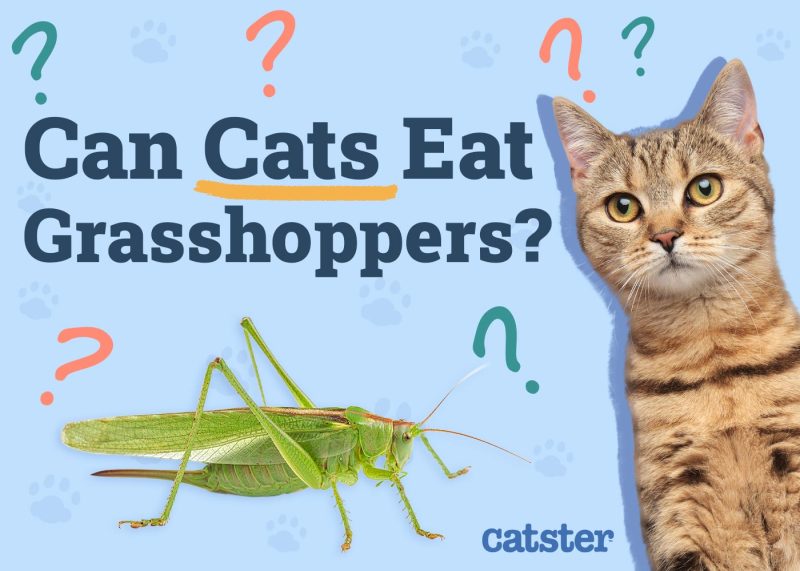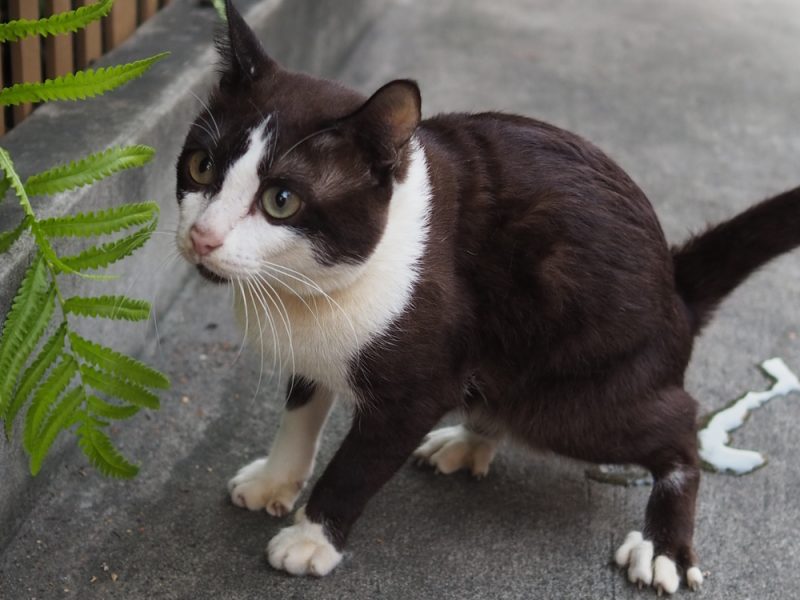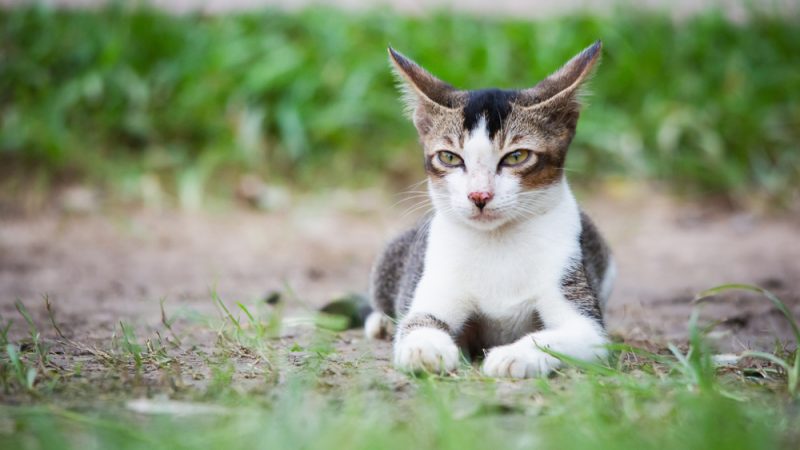In this article
Cats are described as being obligate carnivores, which means that they must eat animal meat as a major constituent of their diet to meet their nutritional needs. What’s more, cats can only get certain nutrients like vitamin A, taurine, and vitamin B12 (cobalamin), among others, only from meat.
The unique nutritional requirements from animal meat and the inability of cats to derive meaningful nutrition from plant-based foods means that they are not omnivores. Read on to learn more about a cat’s nutritional profile.

What Is an Omnivore?
An omnivore is any organism (plant or animal) that has the ability to eat and survive on both plant and animal matter. In most cases, they will have a diet that consists of both of these food types, and they will often adjust their dietary intake based on the seasons and the availability of various food sources.
Omnivores have the ability to effectively digest and obtain energy and nutrition from both plants and animals. Humans are omnivores, and so too are animals including pigs, catfish and many other pet fish, and some birds, like crows

What Is a Carnivore?
A carnivore is an organism (plant or animal) that has the ability to eat and survive on the bodily tissues of other animals. There are many types of carnivorous animals. Some animals primarily rely on hunting, whereas others are scavengers. A carnivore may, at times, consume plant-based matter (for example, the food inside the stomach of their prey), however, plant-based food generally comprises a very small amount of their total dietary intake. More importantly, even if they are able to digest some plants or plant-derived foods without issue, they often do not derive any meaningful benefits from them (in the form of nutrition).
In taxonomic classification, carnivores are often grouped into types by different criteria. One such classification is that of an obligate carnivore, also referred to as a hypercarnivore. Such animals derive at least around 70% of their diet from animal meal. All cats (including all breeds of domesticated pet cats) are obligate carnivores.
What Cats Eat in the Wild
The exact diet of a wild cat would depend on their geographic location, but cats are carnivores and would mostly eat meat. Their size dictates that they would usually eat rodents like mice and rats, as well as rabbits and birds. Some cats would eat lizards or snakes and they may eat small chickens if available.
Published data that has studied the nutrition of wild cats found that they generally consume a diet that’s around 52 – 63% protein, 25 – 46% fat, and 2 – 12% carbohydrates.1
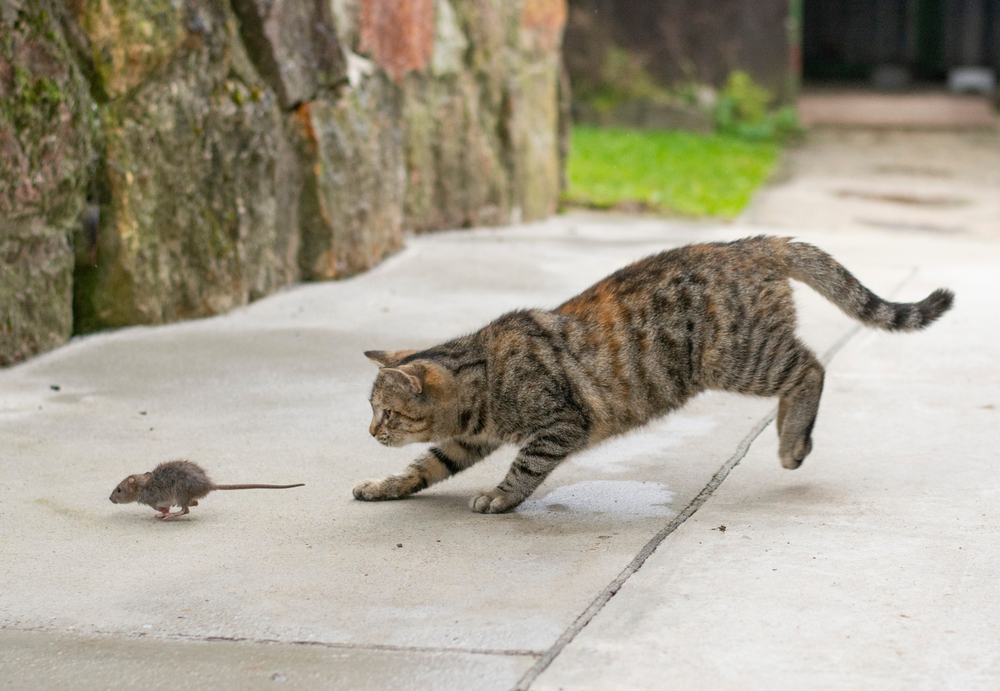
Can a Cat Be Vegetarian?
No. Cats cannot be sustained on a vegetarian diet. By proxy this also means that they cannot be sustained on a vegan diet. Though there are some plants and grains that cats can safely consume, these ingredients on their own cannot meet a cat’s metabolic needs for growth and development, tissue repair, exercise, reproduction, and other normal bodily functions.
Cats need much higher levels of protein than other animals, but they require very few if any carbohydrates. They also require large amounts of taurine. Taurine is only found in animal proteins, while the high protein level that a cat needs cannot be met with a vegetarian diet.
Meat-Based Essentials
Cats can become very ill if they are not fed meat.
- Taurine – Taurine is an essential amino acid for cats. Essential, in this case, means that it must come from the diet because the cat is biologically unable to produce enough of the nutrient by themselves. Taurine is only found in animal-based proteins and is not found in plants, fruit, or vegetables.
- Arachidonic Acid – Cats lack adequate amounts of the delta-5 and delta-6 desaturation enzymes needed to elongate and convert linoleic acid to arachidonic acid.
- Vitamin A (via Retinol) – Cats lack adequate dioxygenase, the enzyme needed to convert beta carotene to vitamin A. This means cats cannot derive vitamin A from plant sources.
- Vitamin B12 (Cobalamin) – primarily used for various enzyme processes (as a cofactor). This vitamin isn’t naturally found in plants.
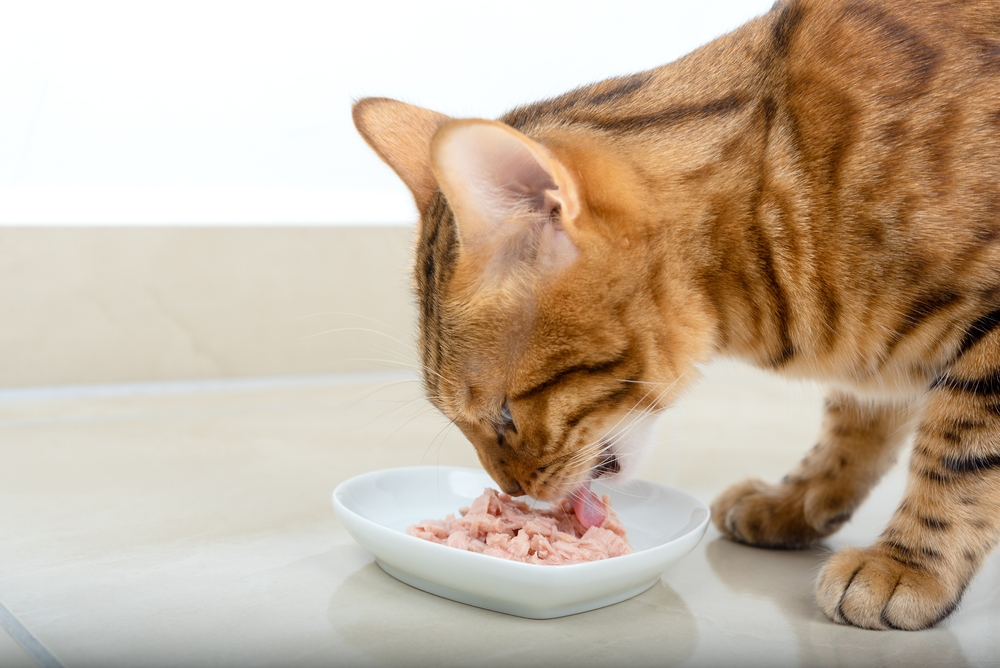
What Happens If a Cat Doesn’t Eat Meat?
Cats that are deprived of animal meat long enough will eventually die as multiple organ systems are negatively affected in the absence of sufficient animal-based protein.
The signs of deficiencies of a particular essential nutrient in a cat’s diet can begin to show in as little as a week and prove fatal in as little as 2-3 weeks, depending on other variables and factors associated with the cat’s nutrition and overall health.

Conclusion
Cats are carnivores, which means that they not only eat meat but that they get essential vitamins, minerals, protein, and amino acids, from animal meat-based sources that they cannot get from plant sources. A cat can become seriously ill if it is not fed meat, and a vegetarian diet is not considered appropriate for domestic cats.
Featured Image Credit: Monika Wisniewska, Shutterstock



